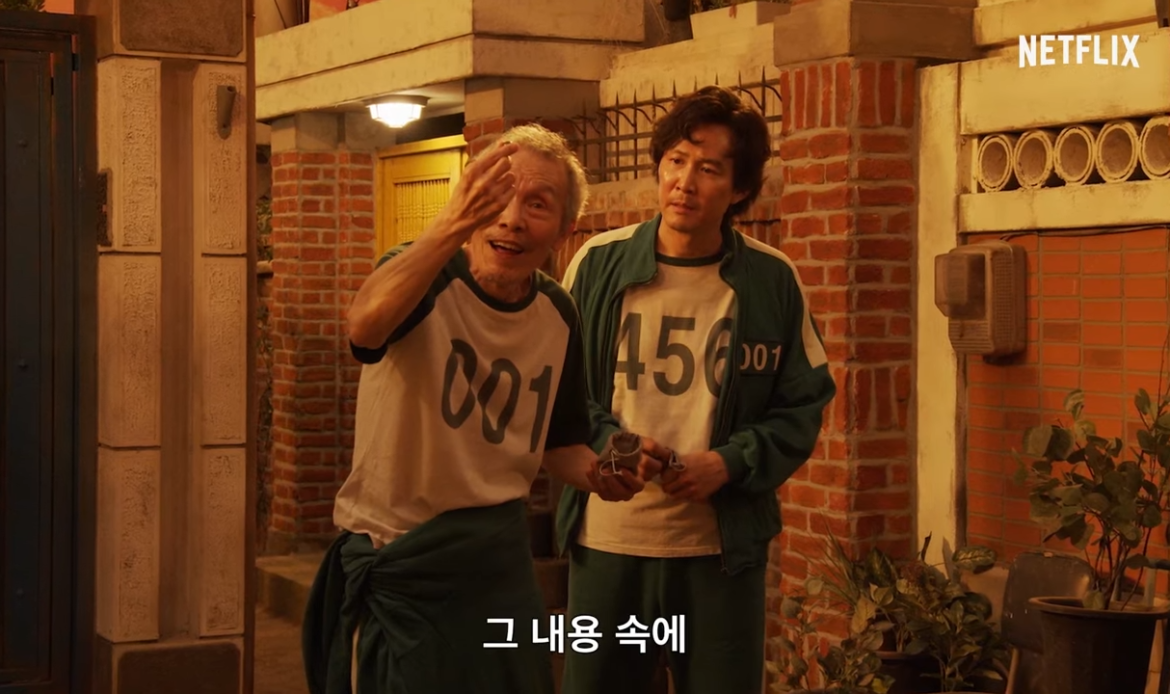The fourth game in Netflix’s Squid Game is the infamous “marbles” challenge. It’s during this game that the term “gganbu”(깐부) makes its debut. But what does it mean, and why does it carry so much weight?
“Gganbu” is a term rooted in childhood games, particularly marbles. It refers to a close ally or teammate you trust and share everything with in the game. In Squid Game, the concept of “gganbu” comes to life during the fourth game. The players are instructed to pair up in teams of two, thinking they’ll work together. However, they soon discover that their “gganbu” is not their partner in survival, but their opponent in a game where the stakes are life and death. The objective is simple yet ruthless: take all the marbles from your partner to survive.

The Many Faces of Marbles
Marble games come in all shapes and sizes. One common version involves creating a hole in the ground, with players trying to roll their marbles into it. Another popular variation is to get your marble as close as possible to the hole or a target. The closer your marble, the better your chances of winning.
The version most of us remember has a mix of skill and thrill. You’d flick your marble to knock others away from the target—a bit like curling in the Winter Olympics but without the brooms. Unlike curling, though, a single well-placed marble could win the game, or a misstep could cause a devastating loss. It was an intense, high-stakes game for kids.
The marbles themselves were often made of glass, and metallic marbles weren’t part of the scene. This simple yet exhilarating pastime thrived in the 1980s, especially when kids formed teams of two. Playing in pairs allowed more children to participate and upped the rewards for winning. These partners were called “gganbu,” and over countless games, the term came to symbolize trust and camaraderie. In today’s lingo, you might even call your “gganbu” your “best friend”(베프)

Gganbu in Squid Game
In the series, Gi-hun teams up with the elderly Oh Il-nam for the marble game. Gi-hun is shown to be a compassionate and gentlemanly character, often looking out for weaker players like the frail Oh Il-nam. However, when faced with the reality of the game, Gi-hun finds himself in a moral dilemma. In a tearful moment, he deceives Oh Il-nam, exploiting the old man’s apparent confusion due to dementia. Using a game of odd or even, Gi-hun ultimately takes all of Oh Il-nam’s marbles to save himself.

(TMI: Odd-or-even is a simple game where one player hides marbles in their hand, and the other guesses if the total is odd or even. While quick and decisive, it was never particularly popular as a marble game in childhood because it lacked the strategy and excitement of other variations.)
Interestingly, in real life, kids rarely played marbles against their “gganbu.” That would defeat the purpose of such a trusted bond. However, Squid Game flips this nostalgic friendship on its head. Through the lens of Oh Il-nam’s perspective, the show brings out the bittersweet yearning for those childhood days when “gganbu” was a term of genuine affection, not a cruel twist of fate.

The use of “gganbu” in Squid Game is a brilliant nod to the innocence of childhood games, made all the more poignant by the brutal context of the series. It’s no wonder this word has struck a chord with viewers worldwide.



